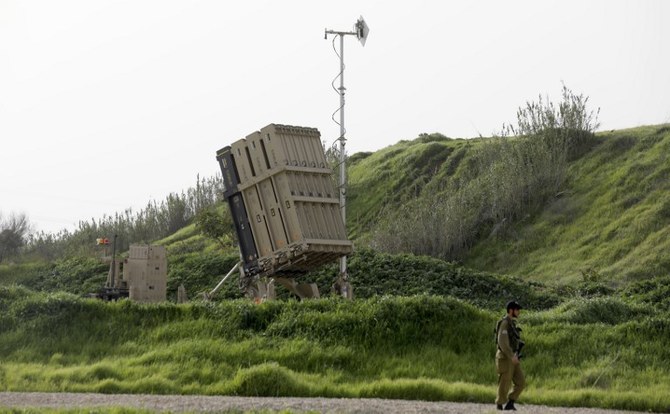November 18, 2018 - Netanyahu in Political showdown to avoid early Israeli Election
Netanyahu in political showdown to avoid early Israeli election | Reuters
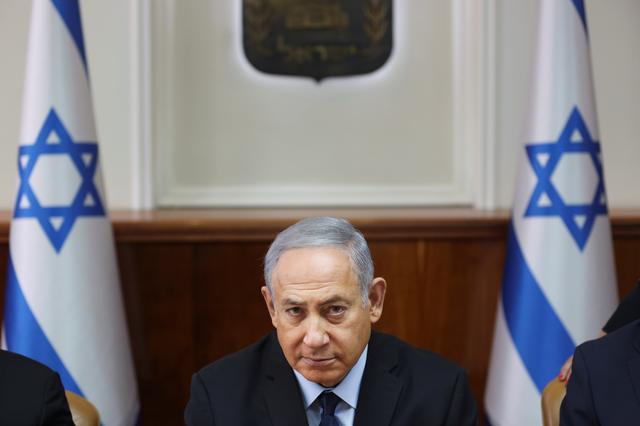
Israel Prime Minister Benjamin Netanyahu attends the weekly cabinet meeting at his office in Jerusalem October 28, 2018. Oded Balilty/Pool via REUTERS
Israeli Prime Minister Benjamin Netanyahu said he would make a last-ditch effort on Sunday to avoid the collapse of a coalition government weakened by the resignation of his defense minister.
With political pundits predicting an early election in March, Netanyahu, head of the right-wing Likud party, was to meet later in the day with his finance minister, who is leading a charge within the coalition toward a snap poll.
The minister, Moshe Kahlon of the center-right Kulanu party, will urge Netanyahu to set an election date promptly, Kulanu officials said.
Defense Minister Avigdor Lieberman’s resignation, announced on Wednesday over what he described as the government’s lenient policy toward an upsurge of cross-border violence with Palestinian militants in the Gaza Strip, left the government with a majority of only one seat in parliament.
That put the fate of Netanyahu’s coalition at the mercy of any of its partners, who have seen the four-term prime minister’s popularity take a rare hit in an opinion poll that showed Israelis were unhappy with him over Gaza.
Netanyahu described his planned meeting with Kahlon as “a last attempt to prevent the collapse of the government”.
Addressing his cabinet on Sunday, Netanyahu said it would be “unnecessary and wrong to go to an election during this sensitive period for our security”.
ROCKETS, AIR RAIDS
Kahlon said on Hadashot TV news on Saturday that it was impossible to run a coalition with control of just 61 of parliament’s 120 seats.
Kahlon’s call was echoed by members of the nationalist Jewish Home whose head, Naftali Bennett, asked to succeed Lieberman as defense chief but was turned down by Netanyahu on Friday.
On Sunday, Israeli media reports said Netanyahu was now prepared to offer Bennett the post in a bid to keep Jewish Home in the coalition.
Such a move, the unconfirmed reports said, would also be aimed at forcing Kahlon to consider the risks to his own party, which also courts nationalist voters, in being portrayed as the main factor behind the collapse of a rightist government.
A poll published on Wednesday by Hadashot showed Likud falling from 30 to 29 parliamentary seats after months of polls that have shown it gaining power.
Only 17 percent of respondents were happy with Netanyahu’s policy toward Gaza, where he agreed to a ceasefire - dubbed by Lieberman as “surrender” - after militants from its ruling Hamas group launched almost 500 rockets into Israel on Monday and Tuesday and Israel carried out dozens of air raids.
Netanyahu’s re-election chances could also be affected by a series of corruption cases against him in which Israel’s attorney-general is weighing his indictment.
An election would complicate promised moves by the United States toward reviving Israeli-Palestinian peace efforts that collapsed in 2014. The Trump administration has said it would unveil a peace plan soon.
Sun Nov 18, 2018 - Dozens of Israeli Settlers Break into Al-Aqsa Mosque
Farsnews
Dozens of Jewish settlers accompanied by Israeli security units forced their way into Jerusalem's flashpoint Al-Aqsa Mosque on Sunday, according to local sources.
WAFA reported that the extremist Israeli settlers and students of Talmudic yeshivas broke into the holy mosque in groups, under heavy protection from Israeli police.
In late 2015, repeated incursions into the Al-Aqsa Mosque compound by Jewish settlers and Israeli security personnel sparked months-long tensions in the occupied Palestinian territories.
2018-11-13 - Turkey is First in Calling For an End to Israeli Airstrikes on Gaza
Turkey is First in Calling For an End to Israeli Airstrikes on Gaza - Eurasia Future
Turkey leads the world in condemning Israel’s airstrikes on Gaza
While the leaders of the Arab world fell silent and with no statements from Washington forthcoming, the Turkish government has been the first to openly call for an end to Israel’s airstrikes on Gaza that have resulted in the deaths of multiple Palestinians in less than 48 hours. President Erdogan’s spokesman Ibrahim Kalin has stated,
“These attacks have once more shown Israel’s unlawful, tyrant and occupant stance. These attacks on the Gazan people should be immediately stopped. The international community, which has kept silent over Israeli attacks, should take responsibility and act”.
Recent years have seen Turkey intensify its pro-Palestinian rhetoric while at the same time, Tel Aviv has consolidated an anti-Turkish alliance in the eastern Mediterranean. Simultaneous to these developments has been the elevation of Turkey’s prestige in Palestine and in Gaza in particular where civilians facing a consummate humanitarian crisis have found that while the capitals of the Arab world turn their collective backs on Palestine, Ankara is the place from whence strong condemnation of aggression against Gaza is derived.
To understand the significance of Turkey’s ever strengthening solidarity with Palestine and Israel’s increasingly consecrated anti-Turkish alliance in the region, one must understand how recent events in this respect have been unfolding.
Israel’s geopolitical moves against Turkey
Formed in 2015, the fledgling Craiova Group is a partnership between Greece, Serbia, Bulgaria and Romania aimed at fostering deeper cooperation between the four south-eastern European nations. While the group has generally been far less notable in terms of its aims and accomplishments vis-a-vis the Three Seas Initiative linking Baltic eastern and central Europe with the European nations of south-east, this month the Craiova Group came into its own as the official organization which will carry out Israel’s attempt to isolate Turkey in the wider eastern Mediterranean region.
On the 2nd of November, Israeli leader Benjamin Netanyahu took part in a Craiova Group summit in Varna, Bulgaria. There, Netanyahu said,
“I am here at the summit of four countries – Bulgaria, Greece, Serbia and Romania.This is the first time that they have invited a leader outside these four countries to participate in their summit. This is a great honor for Israel and reflects Israel’s rising status in the world.
Each one of the leaders has individually told me that they will try to improve their consideration of Israel in relevant votes both at the EU and the UN. They all want to promote the gas pipeline from Leviathan to Europe and the Balkans.They are also very interested in Israeli gas and Israeli technology, and they would very much like Israel’s friendship. This is a good sign”.
Netanyahu also discussed making the Craiova Group integral to Tel Aviv’s plans to construct the East Med Pipeline, a joint Israeli-Hellenic project that will see a gas pipeline travelling from disputed Israeli waters through to disputed Cypriot waters and finally into mainland Europe via The Hellenic Republic. But while Netanyahu’s speech talked about unity against the supposed threat of Islam which clearly played to the sentiments of many in Greece, Bulgaria, Serbia and Romania where the racist anti-Turkish/anti-Muslim hashtag “#nokebab” has become a cultural phenomenon, the pipeline alliance that Israel is trying to secure is clearly aimed at boxing Turkey into a corner in its own territorial waters.
At present, Ankara and Nicosia are in the midst of a heated row regarding rights to offshore gas fields in the waters off the island of Cyprus. At present, while there is no realistic plan for Nicosia to militarily enter the Turkish North of the divided island, Nicosia is opposed to Turkish plans to begin extracting gas in the waters off of the disputed territory of the Turkish Republic of Northern Cyprus (aka Northern Cyprus). To put it another way, in spite of rhetoric to the contrary, the government in Nicosia clearly cares about controlling the waters off of Cyprus more than it cares about controlling the island’s total landmass.
But far from being just a new chapter in the age old Hellenic-Turkish disputes of the region, this particular conflict is also being driven by Israel whose government is keen to see Tel Aviv, Nicosia and Athens work jointly on an East Med pipeline that excludes Turkey while at the same time impinging on offshore territory that Turkey claims it has an inalienable right to exploit. Now, Israel looks to bolster these plans which have already seen Egypt pivoting ever closer to Tel Aviv and Nicosia by also drawing Bulgaria, Serbia and Romania into the project.
When one remembers that during the ultimately brief Turkish-Israeli rapprochement of 2016, there were talks of a joint gas project between Tel Aviv and Ankara, the underpinnings of the present conflict become all the more clear.
To understand the background of the severe downgrade in Turko-Israeli relations that has now become a rivalry for energy supremacy in the eastern Mediterranean, it is important to understand the following that was originally published in Eurasia Future in
May of this year:
—
The Turkish government has just announced the effective expulsion of Eitan Na’eh, Israel’s Ambassador to Ankara.
According to the Daily Sabah,
“Na’eh was asked to leave Turkey indefinitely by the Turkish ministry of foreign affairs following the Israeli bloodshed and his tweets”.
The move comes as Erdogan has
openly challenged other nations that have formal relations with the occupier entity to question whether such relations are beneficial to the Muslim world. The clear targets of Erdogan’s challenge are
President Sisi’s Egypt – Turkey’s hated East Mediterranean rival, a waffling Jordanian monarchy and Turkey’s
pro-FETO (Gulenist) Albanian nemesis in the western Balkans.
From healthy relations to the ultimate strain
Of course, Turkey was the first Muslim majority nation to recognise Israel and prior to recent decades, Ankara and Tel Aviv have had a generally healthy relationship. This dramatically changed in 2010 when Israeli commandos illegally boarded the MV Mavi Marmara in international waters. The MV Mavi Marmara was a privately chartered Turkish flagged ship carrying mostly Turkish activists on their way to Gaza in order to deliver much needed humanitarian supplies to besieged Palestinians. The gruesome raid killed ten Turks and resulted in the lowest ebb in Ankara-Tel Aviv relations until now.
Pipeline politics no more
The incident resulted in the expulsion of Tel Aviv’s ambassador to Ankara and a formal downgrading in relations. In 2016, the two sides reconciled, primarily out of pragmatic motives. At the time, both Israel and Turkey hoped to jointly participate in a pipeline that would transport gas from northern Iraq through Turkey and into Israel.
However, since then, the plans for such Turkey to Israel East Mediterranean pipeline have stalled. Instead, Tel Aviv has pivoted closer to Turkey’s regional rival Egypt (which has said next to nothing about Palestine in recent days), while most importantly there is now talk of an EU sponsored East Mediterranean pipeline between Israel, Cyprus, Greece and Italy.
According to the pro-Brussels
New Europe,
“The EastMed gas pipeline would circumvent Turkey, which has increased tensions with Cyprus, Greece and Israel recently, providing a way to transport newly discovered gas supplies from the East Mediterranean to Europe. The talks in Nicosia in May follow a memorandum of understanding regarding the EastMed pipeline, which was signed in December.
According to the Public Gas Corporation of Greece (DEPA), the EastMed will connect the recently discovered gas fields in the Levantine Basin, in the southeast Mediterranean, with mainland Greece and is projected to carry 8-14 billion cubic meters per year of natural gas to Greece and Europe.
According to DEPA, the approximately 1900 kilometer long pipeline (700 kilometers on-shore, 1200 off-shore) consists of the three following main sections, as well as compressor stations located in Cyprus and Crete: a pipeline from the fields to Cyprus, a pipeline connecting Cyprus to Crete, and a pipeline from Crete crossing mainland Greece up to the Ionian coast.
From there the EastMed can link up with the offshore Poseidon pipeline enabling the delivery of additional diversified sources from the Levantine to Italy and beyond. The EastMed pipeline is preliminarily designed to have exit points in Cyprus, Crete, and mainland Greece as well as the connection point with the Poseidon pipeline”.
The deal to create such a pipeline was sealed in December of 2017 while glowing reports from pro-EU media touted the deal as a means of allowing Europe to decrease its dependence on Russian gas while also offering Israel a chance to swap Turkey for EU partners. As Turkey’s long paralytic bid to join the EU is now de-facto over, both Europe and Israel’s cooperation over a new East Mediterranean gas pipeline has the effect of drawing Russia and Turkey into an even closer partnership than the one they are currently in.
At the moment the Turkstream pipeline designed to bring Russian gas into Europe via Turkey is a major joint project between Moscow and Ankara. Now, both the EU and Israel are looking to challenge this route with a pipeline of their own in a similar region. In reality, there is enough demand for gas in Europe and Israel to mean that both pipelines can coexist, but the geopolitical optics are clear enough. Tel Aviv has joined forces with the most anti-Ankara states in the EU in order to cut Turkey out of Israel’s future.
The importance of Turkey’s Soft Power in the Sunni Muslim world
President Erdogan has already proved himself to be the ‘Sultan of Soft Power’ in the wider Sunni Muslim world. Without clear leadership from Egypt, Saudi Arabia or Qatar and with Saddam’s always controversial Iraqi government long out of power, Erdogan has positioned himself as a champion for Palestine not only in Turkey and the Sunni Arab world but beyond. Because of this, one should never underestimate how far Turkey will take its support of Palestine vis-a-vis Tel Aviv, not least because the more Erdogan voices his opinions in support of Palestine, the more he is respected and supported both in Turkey and far beyond.
Israel supporting Turkey’s main rivals
Because Israel has taken clear moves away from Turkey and towards its hated Hellenic rivals, officials in Ankara who in the past may have been hesitant to sever ties with Tel Aviv because of economic considerations may now be much closer to doing so. Israel’s
intensifying military cooperation with both Greece and Cyprus are a further sign that when it comes to Turkey, Tel Aviv is doing everything in its power to replace its once healthy Turkish partnership with that of countries with notoriously poor and always heated relations with Ankara.
Then there is the issue of Kurdish ethno-nationalism in both Syria and Iraq. Uniquely in the world, the United States and Israel are supporters of Kurdish separatism both in northern Syria and northern Iraq. President Erdogan has already made it clear that this is one of several red lines that Israel can cross in respect of maintaining even semi-normal relations. During the attempted illegal Kurdish succession from Iraq in the autumn of 2017, Erdogan posed the following rhetorical
statements to Kurdish secessionists in Iraq,
“Who will recognize your independence? Israel. The world is not about Israel?…
…“You should know that the waving of Israeli flags there will not save you!”
Traditional Anti-Turkish lobbies in the US team up with the American Jewish lobby
Finally, it is not only in the Middle East and Mediterranean where Israel has taken up common positions with Turkey’s adversaries. In the United States, the powerful Israel lobby has
joined forces with the comparatively smaller but still influential US based Hellenic and Armenian lobbies to protest the sale of US made F-35 jets to Ankara. While the move ultimately failed, it demonstrated that unlike in the past where the US Jewish lobby did not try to antagonize Turkey, in 2018, it is willing to team up with lobbies whose primary objective is to promote grievances against Turkey.
Against this background, it is perhaps not surprising that
Gilad Erdan, a member of Benjamin Netanyahu’s Likud faction has called for Tel Aviv to recognize the events of 1915 as an “Armenian Genocide”. If Israel were to officially to do this, it would represent a clear break between Tel Aviv and Ankara and quite possibly a point of no return. The more Turkey stands up for Palestine, the more voices like those of Erdan will become amplified in arguing for a move that is less about Armenia (a traditionally anti-Zionist nation) than about sending a clear message to Turkey that the partnership has run its course.
—
To summarize the background to the current conflict: after it became clear that plans for a joint Turko-Israeli gas project fell through, Tel Aviv pivoted its regional gas ambitions to Turkey’s main regional adversaries including and especially those in Nicosia and Athens. At the same time, as it became clear that President Erdogan was not going to back down in his support for Palestine, Tel Aviv began strengthening its military contacts with Nicosia, Athens and even Cairo. Simultaneous to this, statements from Israeli on supporting a YPG/PKK led Kurdish insurgency in Syria became ever more pronounced while in the United States, the influential Israel lobby teamed up with the traditionally anti-Turkish Hellenic, Armenian and Kurdish lobbies in an effort to stall delivery of American made (and partly Turkish designed) F-35 fighter jets to Ankara.
Now in addition to taking the side of Cairo and more overtly taking the side of Nicosia in their offshore gas disputes with Ankara, Israel is now looking to draw Serbia, Bulgaria and Romania into this wider anti-Turkish alliance.
Part of the worry is that while for Israel and the Hellenic states of Europe the anti-Turkish endgame of the East Med Pipeline and the simultaneous strengthening of military ties is an overt strategy, for Bulgaria, Romania and Serbia (
a nation with rapidly improving ties with Turkey) there is a danger of being suckered into a geopolitically fractious conflict when neutrality would best serve the interests of Belgrade, Sofia and Bucharest. Thus, there is a real possibility that under the cunning leadership of Benjamin Netanyahu, “#nokebab” might transform from a racist online trend into the formal foreign policy of countries that stand to gain little by antagonising Turkey.


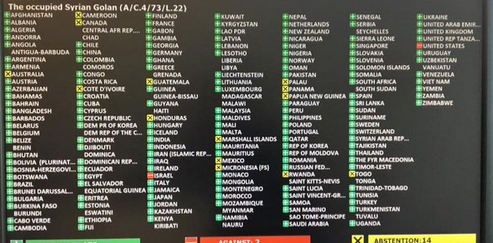

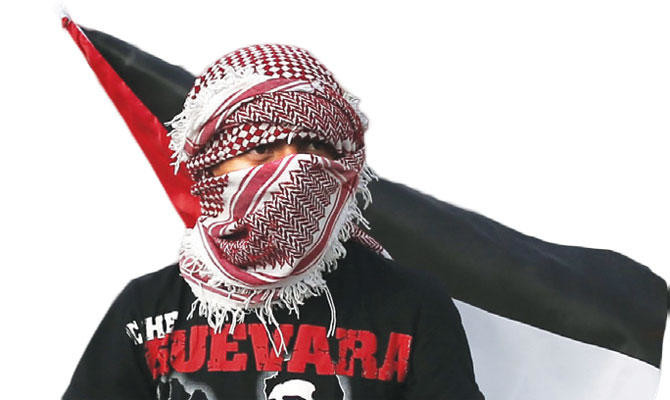
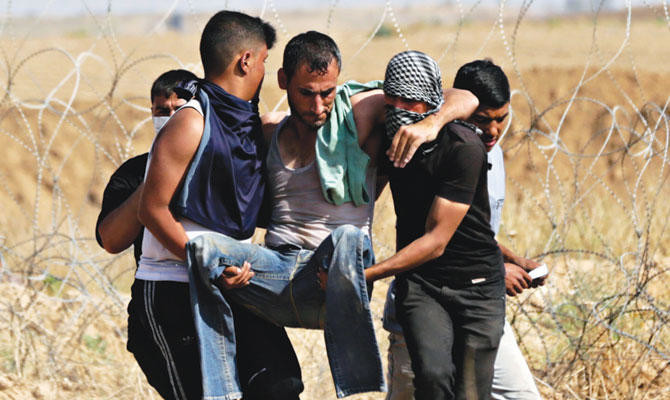

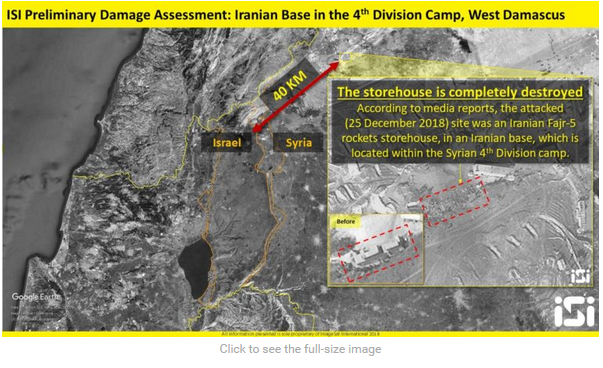
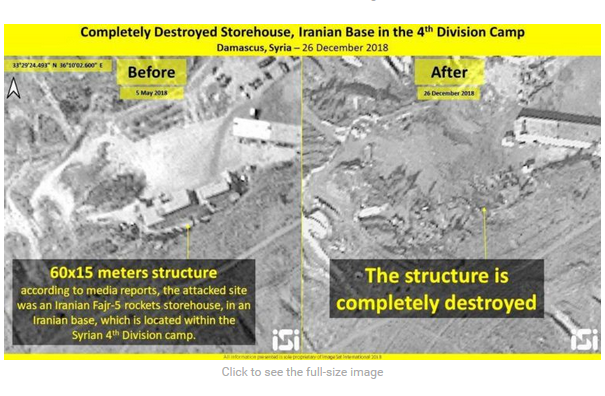
 I should be used to their pathological ways by now but somehow I still find this shocking. Bring on the "total destruction of Israel" the C's predicted already!
I should be used to their pathological ways by now but somehow I still find this shocking. Bring on the "total destruction of Israel" the C's predicted already! 